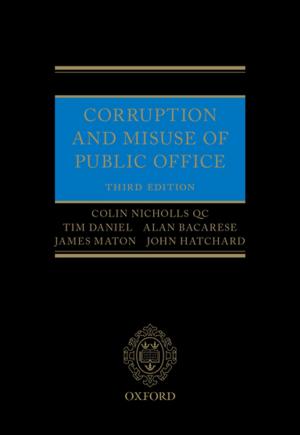The Oxford Handbook of British Philosophy in the Seventeenth Century
Nonfiction, Religion & Spirituality, Philosophy, Modern, Social & Cultural Studies, Social Science| Author: | ISBN: | 9780191642012 | |
| Publisher: | OUP Oxford | Publication: | June 27, 2013 |
| Imprint: | OUP Oxford | Language: | English |
| Author: | |
| ISBN: | 9780191642012 |
| Publisher: | OUP Oxford |
| Publication: | June 27, 2013 |
| Imprint: | OUP Oxford |
| Language: | English |
The Oxford Handbook of British Philosophy in the Seventeenth Century comprises twenty-six new essays by leading experts in the field. This unique scholarly resource provides advanced students and scholars with a comprehensive overview of the issues that are informing research on the subject, while at the same time offering new directions for research to take. The volume is ambitious in scope: it covers the whole of the seventeenth century, ranging from Francis Bacon to John Locke and Isaac Newton. The Handbook contains five parts: the introductory Part I examines the state of the discipline and the nature of its practitioners as the century unfolded; Part II discusses the leading natural philosophers and the philosophy of nature, including Bacon, Boyle, and Newton; Part III covers knowledge and the human faculty of the understanding; Part IV explores the leading topics in British moral philosophy from the period; and Part V concerns political philosophy. In addition to dealing with canonical authors and celebrated texts, such as Thomas Hobbes and his Leviathan, the Handbook discusses many less well-known figures and debates from the period, whose importance is only now being appreciated.
The Oxford Handbook of British Philosophy in the Seventeenth Century comprises twenty-six new essays by leading experts in the field. This unique scholarly resource provides advanced students and scholars with a comprehensive overview of the issues that are informing research on the subject, while at the same time offering new directions for research to take. The volume is ambitious in scope: it covers the whole of the seventeenth century, ranging from Francis Bacon to John Locke and Isaac Newton. The Handbook contains five parts: the introductory Part I examines the state of the discipline and the nature of its practitioners as the century unfolded; Part II discusses the leading natural philosophers and the philosophy of nature, including Bacon, Boyle, and Newton; Part III covers knowledge and the human faculty of the understanding; Part IV explores the leading topics in British moral philosophy from the period; and Part V concerns political philosophy. In addition to dealing with canonical authors and celebrated texts, such as Thomas Hobbes and his Leviathan, the Handbook discusses many less well-known figures and debates from the period, whose importance is only now being appreciated.















